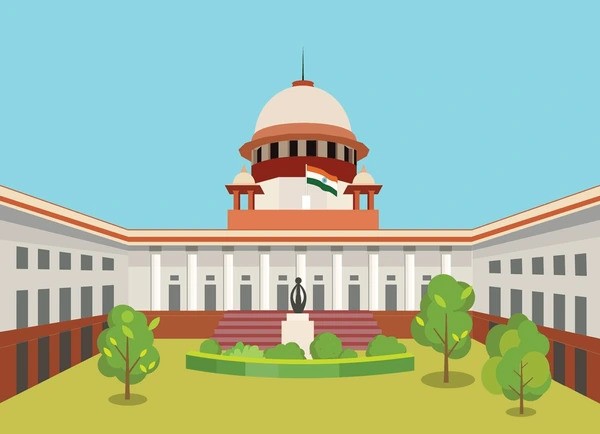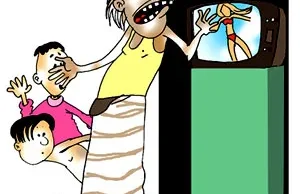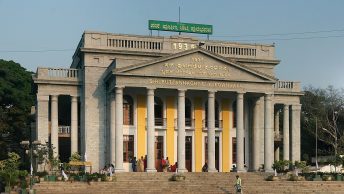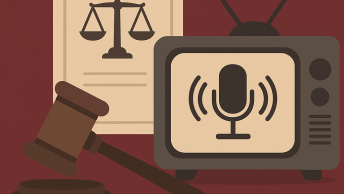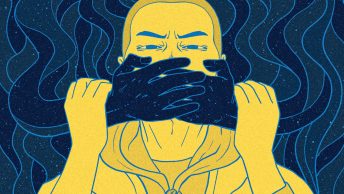Introduction
On April 25, 2003, The Hindu published an editorial titled ‘Rising Intolerance’. This editorial was translated and further reproduced in Murasoli, a DMK newspaper. The editorial critiqued the then-prevailing regime of AIADMK in Tamil Nadu, led by Jayalalitha as the chief minister of the state. So, what was it about this article that amounted to a breach of legislative privileges under Article 194 of the Indian Constitution?
Part of the published text read, “With each passing day, the Jayalalithaa administration in Tamil Nadu seems to be scaling new heights of intolerance. The crude use of state power against various sections including political opponents and the independent media shows a contempt for the democratic spirit that is deeply disturbing.”
The then-Speaker, K. Kalimuthu, took note of the publication and asserted his qualms with the editorial. As per the resolution, the Speaker believed that The Hindu had presented a distorted narrative of the assembly proceedings and that its actions “amount to imputing motives and slandering the Privileges Committee and its action”. This qualified as a “breach of privilege of the entire house”. The editorial was also “wrong, faulty and contrary to the truth” in the opinion of the Speaker. A cumulative of three reports were mentioned in the resolution. The Speaker’s statement raised objections to various terms such as “stinging abuse”, “unrestrained attacks on the opposition”, “fumed”, “incensed”, “chastisement”, and “diatribe”, all of which were utilized in different instances to characterize Ms. Jayalalitha’s speeches. These expressions were labeled as indecent, with their usage believed to be driven by a desire to undermine the positive reputation and popularity of the Government.
On 29 May, 2003, N Ravi, the then-Editor-in-Chief of The Hindu, produced a 14-page submission on the issues raised by the Speaker. He maintained the stance that the allegations leveled were grossly unfair, and protection of the government’s reputation could not be used as a pretext for restricting the freedom of press. Ravi also brought to light the language of the Speaker’s statements. The Editor-in-Chief considered these to be akin to judgment, and in the nature of determinate pronouncements of guilt produced prior to any reference to the Privileges Committee. The norms of legislative propriety and the high office of the Speaker did not allow for a substantial divergence in findings of the Privileges Committee without a transgression of the convention.
On November 7, 2003, the Tamil Nadu assembly passed a resolution sentencing five senior editors of The Hindu and the editor of the DMK newspaper Murasoli to 15 days in prison after the Privileges Committee of the House pronounced them guilty. This was passed without any need for Ayes or Noes, without any murmur or clamor. Shortly after, the editors at The Hindu were arrested. The arrests sparked a backlash from across the nation. November 7 was called “a black day for parliamentary democracy and freedom”. On November 8, 2003, Ravi and others moved the Supreme Court against the order of the Speaker. Harish Salve, the legal counsel, argued that no proceedings of the legislative assembly were disturbed or obstructed by the statements made and therefore, legislative privileges could not be invoked.
On November 10, 2003, the Supreme Court stayed the arrest. However, the court acknowledged the gaping inconsistencies in the previous judgments by the apex court. Later, in December 2003, a five-judge bench referred the matter to a seven-judge bench. Almost two decades later, in October 2023, the Supreme Court decided to hear the matter in March 2024. A substantial question of law, with two conflicting landmark judgments has been unheard by the court, but not forgotten by the people, especially members of the Indian press. The next section details this conflict in the law.
Origins of Dubiety: Pandit M. S. M. Sharma v Shri Krishna Sinha (1958) and In The Matter Of: Under Article 143 v Unknown (1964)
The law relating to legislative privileges in India is unsatisfactory as it stands. A conflict between observations in different bench decisions came to light in the case of N Ravi and a subsequent need for authoritative settlement was observed by a five-judge bench of the Supreme Court.
In the case of Pandit MSM Sharma v Shri Krishna Sinha, Sharma, the editor of the newspaper Searchlight published a speech delivered by Maheshwar Prasad Narayan Sinha in the Bihar Legislative Assembly, despite certain portions of the speech being ordered to be expunged by the Speaker. The speech contained allegations against Chief Minister Krishna Sinha, including claims of corruption and improper influence in government appointments. Following the publication, a member of the Assembly raised a question of breach of privilege, leading to the matter being referred to the Privileges Committee.
The petitioner argued that Article 194(3) of the Constitution should be subject to Article 19(1)(a), which guarantees the right to freedom of speech and expression. However, the Court rejected this argument, noting that Article 194(3) was not expressly subjected to other provisions of the Constitution, indicating the Constitutional makers’ intention not to subject it to Article 19(1)(a). Additionally, the Court clarified that laws made by the State Legislature, pursuant to Article 194(3), could not violate fundamental rights under Article 13. The Court emphasized that while such laws could abridge fundamental rights, they would not be void because Article 194(3) holds the same constitutional supremacy as Part III.
The Court, here, held that an individual’s fundamental rights under Article 19(1)(a) and Article 21 must yield to the privilege powers of a state legislature, as per the rule of harmonious construction.
In passing, the Court also mentioned that if the Parliament or state legislatures were to codify privileges, they would be ‘ordinary’ law, and any such code would be subject to judicial review. Conjecture suggests that legislative bodies may view this as an interference by the judiciary, and thus, no such code exists in India.
The Keshav Singh case, following the Searchlight case, presented a more turbulent scenario. Despite reiterating the rule of harmonious construction, the Supreme Court declared that it possessed the authority to investigate whether a specific privilege claimed by the legislature was valid. This involved consulting the privileges of the Commons to ascertain the legitimacy of the claimed privilege. However, if the privilege was deemed valid, the courts could not intervene in its exercise or in the punishment for its breach. Although the Supreme Court did not alter the balance between privileges and Article 19(1)(a) outlined in Searchlight, it ruled that in a conflict between Articles 21 and 105(3) and 194(3), Article 21 would prevail. The legislator’s right to arrest is still subject to Article 21 of the Constitution.
Legislative privileges are special rights. These exist in exceptional circumstances, and are meant to act as shields to prevent disruption in legislative functioning. However, to use them as swords with the pommels imprinted with latent political motives is an abuse of such rights.
Truncheon of Autocracy or Fair Exercise of Privileges?
Recentering to the case at hand, Harish Salve, the counsel for The Hindu, argued that “a slur on the chief minister does not constitute a contempt of the House.” Privileges were invoked because the statements were ‘contrary to truth’ and ‘intended to malign the Chief Minister’. However, the Speaker failed to demonstrate how the publication obstructed the legislative proceedings. The content was in the nature of ‘mere utterances’ and also qualifies as speech in the interest of the general public. An apparent exaggeration, a colorful elaboration or an expression of opinion on the legislative proceedings does not constitute a breach of parliamentary privileges. It is the lack of precision in identifying these privileges that allows for unfettered abuse of such special rights.
Additionally, the context was rife and the timing, fairly convenient. In April 2003, Jayalalitha expelled 43 opposition members from the state legislature and briefly jailed them. When The Hindu ran three reports and an editorial lambasting her actions, Jayalalitha responded by filing as many as 17 separate criminal defamation cases against The Hindu.
While in the cases of Searchlight and Keshav Singh, the Court applied the rules of harmonious construction and attempted to ‘settle’ the law on the interplay of Articles 19(1)(a), 21 and 194(3), it has failed to conclusively do so. This lacuna leaves the press with no option but to self-regulate, and often overly so. The chilling effect cast on the press corresponds to a democracy with a shrinking public sphere that is deliberative, but not sufficiently so. A press that, as a matter of caution, disproportionately regulates and censors itself, may also inadvertently confer legitimacy to the ideas that are self-censored due to fear of sanctions.
A seven-judge bench, comprising CJI Chandrachud and Justices S.K. Kaul, Sanjiv Khanna, B.R. Gavai, Surya Kant, J.B. Pardiwala, and Manoj Misra, is yet to hear the matter. Albeit not timely, it is certain that a decisive judgment on these articles of the constitution that are inter se jostling for space will bring a sigh of relief for the press with an accompanying clarity on how to navigate this complex politico-legal space.
While the case was held to be distinguishable on several counts from N Ravi v Speaker, in 2021, Facebook v Delhi Assembly drew significant attention of the Court to this pending matter. It was recognised as a question in urgent need of being addressed, with expanding conflicts arising out of the inconsistencies of previous judgments.
Conclusion
Article 19(1)(a) is a transcendental provision which confers on the citizens an indefeasible right of paramount importance to any democratic state. Article 194(3) and Article 105(3), as argued, are in the nature of transitory provisions. The provisions concerning the privileges of Commons were not intended to dictate this delicate balance.
In India, certain legislative privileges are expressly mentioned in the Constitution while the others are recognised in the Rules of Procedure and Conduct of Business in Lok Sabha framed under its rule-making power. However, a simple cursory glance would right indicate their insufficiency in defining privileges, and further determining a breach of such privileges.
Codification of parliamentary privileges would allow the press to regulate speech within reasonable limits. Definitive precision will give way to foreseeability. Once codified, such rules would be subject to judicial review, and thus, concomitantly compatible with the Constitution of India.
However, the Court must settle the two antithetical positions discussed in this article to meaningfully allow such a code to come into being.
Deepanksha Wadhwa is a Second-Year student at NALSAR University of Law.

